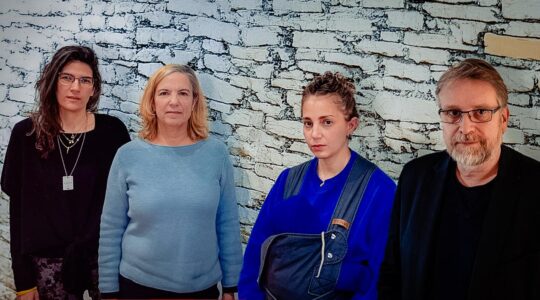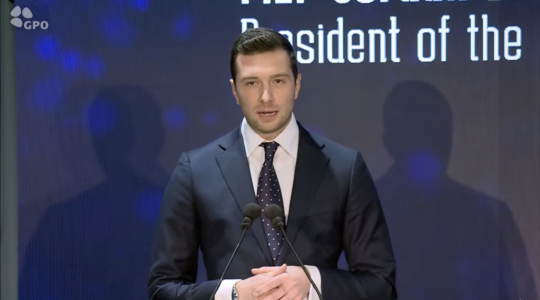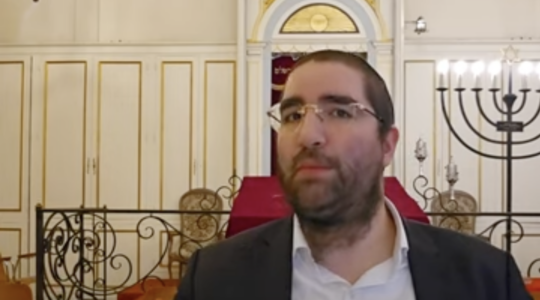(JTA) — Leaders of Polish Jewry offered diverging reactions to the controversial bill passed Friday in the country’s parliament, which aims to criminalize the term “Polish death camps” and claims of complicity by Poland in Nazi crimes.
Artur Hoffman, the president of the TSKZ cultural organizations of Polish Jews said he strongly supported the bill whereas Rabbi Eliezer Gur-Ari of the Chabad movement in Poland said he opposed it, the Israeli daily Makor Rishon reported Sunday.
“Israel and Jews all over the world need to help Poland fight this combination of words,” Hoffman said, referencing the term “Polish death camps” to describe facilities set up by Nazi Germans on Polish soil during their occupation of that country. “Everyone knows it’s just false, these were Nazi camps.”
With 1,200 registered members from 15 cities, TSKZ is the oldest and largest Jewish group in Poland.
The bill, which needs to pass through the Polish Senate and be approved by the president to become law, states that a fine or imprisonment could be imposed on “whoever accuses, publicly and against the facts, the Polish nation or the Polish state of being responsible or complicit in the Nazi crimes committed by the Third Reich” or “other crimes against peace and humanity, or war crimes or otherwise grossly diminishes the responsibility of the actual perpetrators.”
But Gur-Ari said he opposes the bill because “it would be a great sin to erase the actions of the Poles during the Holocaust. Many of them collaborated. There were rescuers but they were not the majority,” he told Makor Rishon.
In addition to some four million Jews, the Nazis killed three million Polish non-Jews, whom they regarded as lesser humans. Poles may have killed 2,500 Jews during the Holocaust, according to Polish Chief Rabbi Michael Schudrich, though Efraim Zuroff, Eastern Europe director for the Simon Wiesenthal Center, told JTA the actual number may have been higher.
Israeli Prime Minister Benjamin Netanyahu called the bill “baseless,” saying he opposes it. The foreign ministry called for a clarification discussion the deputy ambassador of the Polish embassy in Israel. The United States Holocaust Museum said it was “deeply concerned” over the bill which, if it becomes law, would “chill a free and open dialogue addressing Poland’s history during the Holocaust.”
Many Jewish organizations also condemned the bill, with the World Jewish Congress calling it a “historical obfuscation” and an “attack on democracy.” Zuroff also criticized the bill as excessive and meant to “reject any criticism” on the actions of many Poles he said betrayed or killed Jews during the Holocaust. But, he added, the Polish government’s opposition to the term “Polish death camps” is justified. Polish President Anderzej Duda responded to the wave of condemnations by saying he may introduce changes to the language of the bill as it progresses.
Duda’s right-wing Law and Justice Party is “reversing course” from previous governments that acknowledged that many Poles betrayed or killed Jews, in addition to thousands who rescued them, Zuroff said.
JTA has documented Jewish history in real-time for over a century. Keep our journalism strong by joining us in supporting independent, award-winning reporting.





